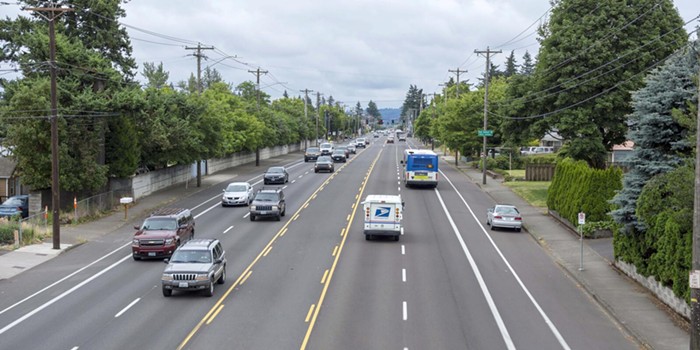Move Primaries to September!
"I've become a professional candidate," Nick Fish complained during the Mercury endorsement interview. A contender for an open seat on city council, Fish first ran for city council starting almost three years ago. At that time, he was running for a seat vacated mid-term by Charlie Hales. Ultimately, Randy Leonard won that race and Fish took third.
Since then, Fish has barely taken time to step off the campaign treadmill. In this most recent campaign, he first had to successfully become one of two candidates in the May primaries (a chore that started last fall), and then run for another six months until the general election.
Fish aptly points out that such long campaign cycles quickly narrow the field of candidates down to only the people who can afford such long absences; it's unlikely candidates such as small business owners or teachers can take a yearlong absence from their jobs.
Fish suggests moving the primary elections to September. The Mercury agrees this switch would allow a wider pool of candidates as well as intensify interest in the campaigns by shoving all the same information into a shorter period of time.
Strong vs. Weak Mayor
Two years ago, Pearl District developer Bob Ball floated an idea for reconfiguring our city government. The so-called Good Government Initiative pushed forward voting by district and reconsidering the city's "weak mayor" structure. That idea was torpedoed by every politico from Vera Katz to Bud Clark, who called it very "un-Portland."
Every other major American city has a mayor who maintains executive power over a legislative council. But in Portland the only real special powers enjoyed by the mayor are an ability to control the budget and to assign bureaus to council members. Otherwise, the mayor votes just like an ordinary council person.
However, although the Good Government Initiative was shot down two years ago, the concept for a "strong mayor" has returned this election cycle. If Potter is elected mayor, he has pledged to gather up all the bureaus under his control for the first six months of his tenure. Such a plan would give the mayor unprecedented control over the city's functioning.
If on the other hand, Francesconi is elected, it's likely this "strong mayor" concept will take a backseat. Francesconi will enter office under watchful eyes--and with a lingering animosity from council member Erik Sten. It's unlikely the other council members will relinquish their powers to Francesconi--and, subsequently, will hold the mayor's power in check.
Campaign Finance Reform
At the debates, Fish pointed out routinely that his opponent Sam Adams had outspent him--yet lost in the primaries. Likewise, mayoral hopeful Tom Potter received a good deal of press for capping his campaign donations. When Potter rushed past Francesconi in the primaries--spending $1.25 per vote compared to $22.50 per Francesconi vote--he underscored that money did not need to play a role in local campaigns.
Those successes bode well for a push towards campaign finance reform in town. In late April, just before the primary election, Sten and city auditor Gary Blackmer proposed a Clean Campaign Finance Reform Initiative. Under this concept any candidate who could score 1,000 $5 donations from registered voters (tougher than it sounds) would receive $150,000 from the city--and then would not be allowed to solicit any more funds. This innovative idea has had success in Maine and Arizona. It would level the playing field for candidates and would allow them to focus on issues, not fundraising (it would also free them from ties to any business interests).


















